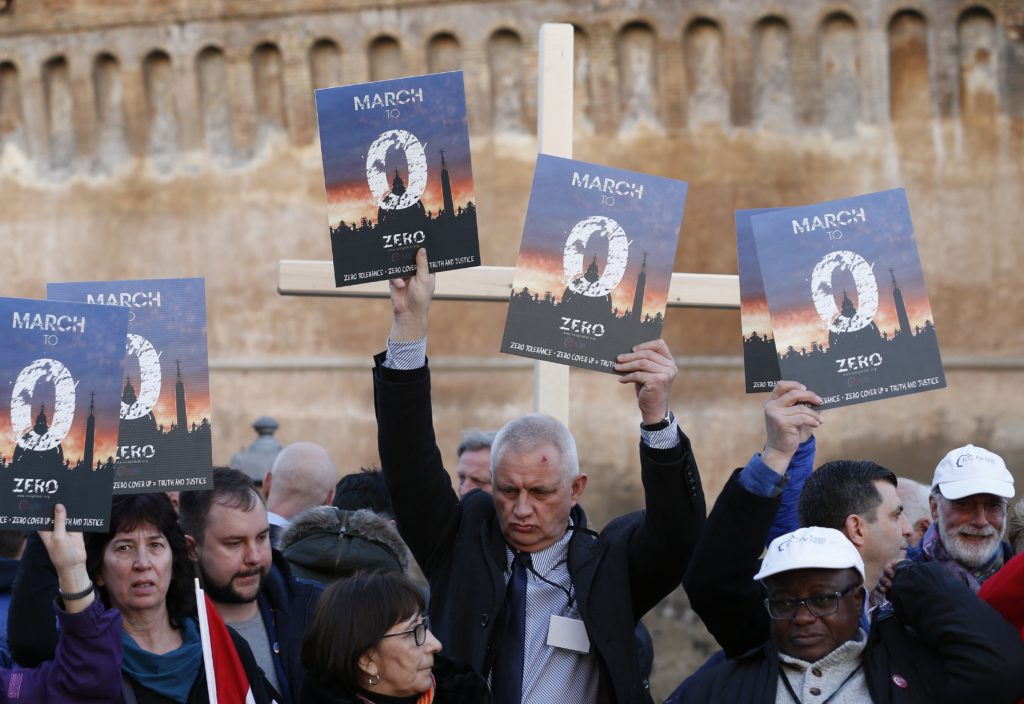Several victims' groups and associations in Italy have joined forces to organize a campaign calling for an independent investigation into clerical sexual abuse in the country.
The nine groups, including the Italian association Rete L'Abuso, announced the launch of the "Oltre il Grande Silenzio" ("Beyond the Great Silence") campaign, urging the Italian government to investigate past and present abuse cases within the Catholic Church.
During a news conference Feb. 15, campaign representatives highlighted the need for transparency, citing similar inquiries done in the United States, France, Germany and Portugal as well as proposals for government-led investigations like in Spain.
Some bishops support an internal investigation while others, like Archbishop Erio Castellucci of Modena, vice president of the Italian bishops' conference, advocated for an independent investigation that would look at abuse not only within the Catholic Church, but also in schools, sports and other institutions to better gauge sexual abuse in the country.
However, Cardinal Gualtiero Bassetti, president of the Italian bishops' conference, expressed concerns that such independent inquiries would deter from the work of current reforms meant to prevent abuses from occurring in the future.
"The goal is not to repeat past errors and omissions and to bring justice to the abused," Cardinal Bassetti told Italian newspaper Corriere della Sera in an interview published Jan. 29.
"But justice is not vindictiveness, and a good service would not be rendered either to the wounded community or to the church if one were to operate in a hasty manner, just to give numbers," he said.
Instead, the cardinal said the church's future relies on establishing good practices today and that local diocesan "listening centers" are available where victims "can find a place to talk about their sufferings and receive direction."
Francesco Zanardi, president of Rete L'Abuso, told journalists Feb. 15 that proposals by some bishops to form an internal commission to investigate abuse "inspires very little confidence" that the church can remain impartial.
For example, he said, there are "23 clinics that offer treatment for pedophile priests while there is not one that offers assistance to victims. So, we see very little interest on the church's part in this context."
Paola Lazzarini, who heads the Italian group Women in the Church, said that the diocesan listening centers promoted by Cardinal Bassetti lack proper credentials and therefore "cannot be considered a reliable source of data" for a proposed internal investigation.
She also took aim at proposals by some bishops for a broader investigation that would look into sexual abuse in Italy in general rather than just in the Catholic Church.
"No; it's important that in this moment, they focus on what is happening internally in the Catholic Church," Lazzarini said. "And moreover, the Catholic Church should look to their own house before going out to teach or speak about other institutions. So, Cardinal Bassetti's proposal is frankly invalid."
Cristina Balestrini, mother of a survivor and head of Rete L'Abuso's committee of victims' families, told journalists that many families, including her own, believe "the church has shown itself incapable of confronting this issue."
She also said victims' families have seen that the Catholic Church in Italy has failed to implement its own rules, including those in Pope Francis' document, "Vos Estis Lux Mundi," which established procedures for reporting allegations of sexual abuse and for holding accountable bishops and religious superiors who protect abusers.
Furthermore, Balestrini said she was saddened by the fact that many victims and their families are often pushed away from the church.
"This I say with great sorrow," she said. "Our current pastor, who we spoke to about what happened to our family, told us, 'Do not spit on the plate where you eat.'"
"And we told him, 'For the past 10 years, we've been trying to remove the vomit that we smell on that plate,'" Balestrini recalled.

